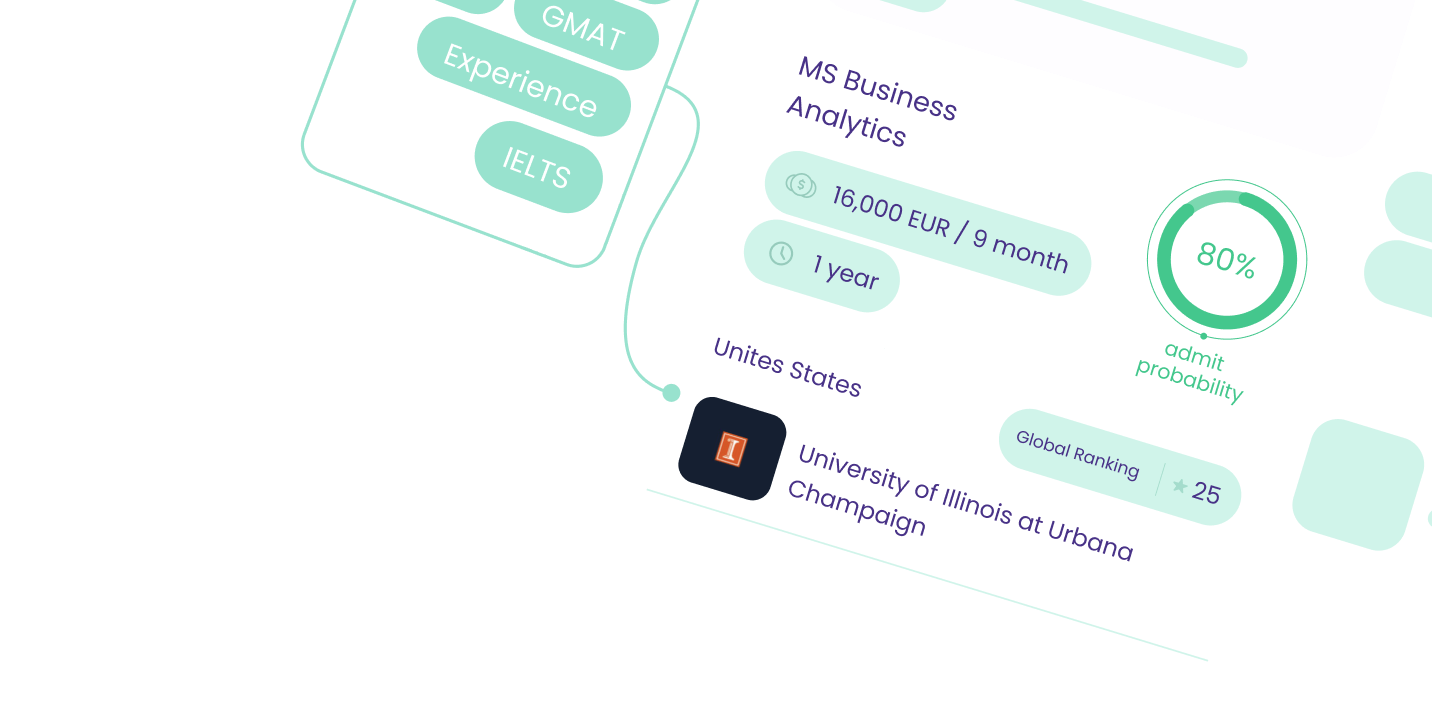Getting ready for the GMAT test in a way that boosts your chances of succeeding in the exam, but doubtful how?
Sometimes, it can be overwhelming without the proper knowledge about where to start and how to study effectively. But however daunting it may seem, with the right tips and strategies, you can master it.
Whether you are new to the GMAT test or want to improve your study method, you can change your test score, which leads to your preferred business school.
This article will discuss the different sections of the GMAT and the factors affecting your score. We shall also discuss the study tips and strategies to ensure better preparation, including developing a proper study plan, identifying weaknesses, and taking mock tests. Let’s get started.
Different Sections to Cover Under GMAT

The GMAT test is used by many universities and business schools worldwide as an admissions criterion for various graduate management programs, such as MBAs and other business-related courses.
The Analytical Writing Assessment, Integrated, Quantitative, and Verbal Reasoning are the four sections that make up the GMAT.
1. Analytical Writing Assessment
The analytical sections evaluate how the candidate put their thoughts on paper in English. A student is required to write an analysis of an argument in 30 minutes. It evaluated the students’ ability to express their thoughts clearly, logically, and effectively.
2. Integrated Reasoning
This is the next section, designed to test the student’s ability to analyse and synthesise information from several sources. This test consists of 12 questions that must be completed within 30 minutes.
3. Quantitative Reasoning
This test evaluates the student’s mathematics skills. A quantitative reasoning test evaluates a student’s capacity for data analysis, chart and graph interpretation, and mathematical problem-solving. The test contains 30 multiple-choice questions that must be finished within 60 minutes.
4. Verbal Reasoning
This test evaluates the student’s ability to read and understand written material, reason with them logically, and also correct written material to conform to standard written English. This section consists of 36 multiple-choice questions that must be answered within 65 minutes.
Each section of the GMAT is timed. Therefore, you must manage your time and allocate time so all the answers are attempted. The total time allotted for all the sections is 3 hours and 30 minutes. Therefore, it is essential to use the time allotted efficiently and effectively to finish all the sections on time.
Moreover, to perform well in these tests, it is crucial to have a thorough understanding of each section. Therefore, you can get a practical understanding and develop a study plan by practising with sample questions and practice tests. This way, you can understand your strengths and weaknesses and help improve your test scores.
How is the GMAT Scored?

The GMAT, or Graduate Management Admission Test, is a computer-based standardised test conducted worldwide. Universities and business schools use the GMAT to assess the skills and abilities of students appearing for the exam and wanting to enrol in their institute.
It is a highly competitive exam that measures many skill sets, such as analytical writing, quantitative reasoning, verbal reasoning, and integrated reasoning. These four sections are scored separately, then combined to give the overall GMAT score.
- First, the AWA section of the GMAT is scored on a scale of 0 to 6, with an increment of 0.5. This section measures students’ ability to analyse an argument and present a written critique.
- Next comes the IR section, scored on a scale of 1 to 8 and incremented by 1 point. The student’s ability to analyse complex data sets and evaluate information presented in various forms, such as graphs, tables, and texts.
- Then come the QR and VR sections, scored on a scale of 0 to 60, while the increment point is 1. The keyword section measures the ability of a student to solve quantitative quantity problems, while the VR section measures the student’s reading and comprehensive ability to reason and evaluate arguments.
It’s crucial to understand that although the AWA and IR sections don’t count towards the total score, they are still reported to the business school. As the GMAT is an adaptive computer test, the difficulty level of the questions adjusts to each participant’s abilities.
The first few questions answered will determine the difficulty level of the subsequent ones. Therefore, the final score is based on both the questions’ difficulty level and the number of questions answered correctly.
Factors that Determine GMAT Score

In every exam, several factors are used to determine a candidate’s performance. Likewise, the GMAT also has several factors that can affect a candidate’s GMAT scores. Here is a list of the factors affecting the GMAT score:
1. Preparation
Like any other exam, preparation is the key to scoring high. The amount and quality of preparation you do before appearing for the exam will significantly impact the candidate’s GMAT score. While preparing for the exam, one should understand the exam format.
It is also essential to manage time effectively and efficiently during the exam. Moreover, you should also get familiarised with the types of questions likely to be asked during the exam. It can be done by practising past questions.
2. Aptitude
Along with preparation, a student’s natural aptitude for the skills tested on the GMAT. It includes critical thinking, quantitative reasoning, and verbal reasoning; these skills can play a significant role in their score. While aptitude cannot be changed overnight, you can enhance your skills through focused study and practice.
3. Test Anxiety
Test anxiety can negatively affect your performance on the GMAT test. It can manifest a decrease in focus memory loss and overall cognitive function. It is recommended that you develop relaxation techniques, practice self-care, and work with a mental health professional in case it’s necessary to combat test anxiety.
4. Test-Taking Skills
Effective test-taking skills can help candidates score higher in GMAT; as the saying goes, practice makes everything perfect. It can include reading comprehension, answering questions quickly and accurately, and identifying the most critical information in each question.
5. External Factors
External factors also come into play. Illness or destruction during the exam can impact a candidate’s GMAT score. The student gets proper rest before the exams and takes rates. Choosing an excellent reputed examination centre is also essential.
The GMAT test scores can be affected by many factors. Therefore, the candidate must work on these factors and focus on improving them. They must ensure they are adequately prepared for the test and manage any external factors affecting them during the exam.
10 Practical Study Tips and Strategies to Ensure Better Preparation

Preparation for any kind of exam can be daunting, and when it comes to the GMAT test, which is a standardised test, it can be even more overwhelming. However, just because it is hard doesn’t mean one can’t achieve it.
All you need is a proper study plan and suitable study materials; with these, you can overcome your weaknesses and achieve your target score.
Here is a list of 10 tips and strategies to prepare better for the GMAT test:
1. Develop a Proper Study Plan
Making a strategic study plan is the first and most important step in preparing for the GMAT. A study plan will help you organise your time while ensuring you cover all the necessary topics for the test. However, finding your strengths and weaknesses is better before making a study plan.
Once you have a clear picture, it’s time to make a schedule that best suits your needs. A study plan can help you with some factors, like keeping track of your progress and identifying areas that need improvement. It can also help you adjust your study routine as necessary.
2. Understanding of the Test Section
It is also essential to understand the structure of the GMAT test to score well on the exam. The GMAT test has different sections; each section is timed, and you cannot skip between sections.
Therefore, knowing the format and structure of each section will help you develop a proper study plan. It will include what study materials to use, which topics to focus on, and how to manage your time effectively and efficiently during the exam.
3. Choose the Right Study Material for the Preparation
Choosing suitable study materials can significantly affect your GMAT preparation. Various study materials, including books, online courses, and study guides, are available. Before selecting any study materials, research and compare different options, and choose one that suits your learning style, budget, and needs.
Suitable study materials should cover all the essential topics, provide practice questions, and offer strategies and tips to help you succeed.
4. Identify Your Weaknesses
To improve your GMAT score, it’s crucial to identify your weaknesses. Once you know your weaknesses, you can develop a plan to improve them. Start by taking a practice test to identify your strengths and weaknesses.
Afterward, focus on your weaknesses and develop a plan to improve them. Make sure to incorporate practice questions and exercises into your study routine to help you overcome your weaknesses.
5. Keep track of Your Performance
Tracking your performance is essential to determining your progress and identifying areas for improvement. Keep a log of your practice test scores, the number of questions you answered correctly, and the areas you found difficult.
Regularly reviewing your progress will help you stay motivated, adjust your study routine, and focus on areas that need improvement.
6. Don’t Get Bogged Down in Questions
Exam time management is essential. It’s necessary to avoid getting bogged down with inquiries because they can save you time. One method is to read through the full exam before answering the questions. Begin with the easy ones and work up to the more difficult ones.
Then, take a deep breath, reread the problem, and seek clues if you get stuck. If it fails, please move on to the next question and return later.
7. Prepare A Plan to Avoid Deductions
Consider the typical mistakes you’ve made and develop measures to prevent them in the future. Please read the description carefully and highlight essential words to avoid misunderstandings. If you need to remember the steps or formulas, write them down.
Show off your maths and science abilities by writing down each step, even if it appears obvious. It will demonstrate your comprehension and assist you in identifying any errors. By planning ahead of time to avoid mistakes, you can reduce your chances of losing points and reach your targeted exam outcomes.
8.Conduct Extensive Practice Tests
Mock tests are essential to exam preparation. It will assist you in becoming acquainted with the format and questions that will be asked on the exam. Practice tests can also assist you in identifying areas for improvement so that you can direct your learning correctly.
Furthermore, practice examinations improve stamina and perseverance, making you better prepared for exams. Therefore, take at least a few practice tests before the exam and examine your results to identify areas for improvement.
9. Revision is Crucial
Revision is an integral part of preparation. Make a habit of reviewing all of the topics you’ve studied regularly. The revision will assist you in remembering material and identifying areas where you need additional practice.
It is recommended to take out time every week to revise. You can also create flashcards or notes on key concepts, equations, or formulas during the revision. Doing so can further help you review and retain information more efficiently. Revising mock test papers will also help you find your weaknesses and areas that need improvement.
10. Be Confident and Positive
Maintain your confidence and optimism. Embrace your abilities and have faith in yourself. Maintaining a positive attitude and not getting discouraged by setbacks or challenges is crucial. A cheerful mindset can significantly improve your test preparation and performance.
One way to do so is by setting and achieving small goals, celebrating your accomplishments, no matter how small, and using them as motivation to keep moving forward.
Bottom Line

Preparing for the GMAT test can be challenging but essential for those seeking admission to top business schools. All one needs is a well-planned study schedule, an understanding of the test format, the proper study materials, and regular self-assessment.
And with a positive mindset and attitude, you can improve your score immensely. By following the tips and strategies discussed above, you can improve your preparation and increase your chances of achieving a high GMAT score.


Frequently Asked Questions
What is the best way to prepare for the GMAT exam?
The best way to prepare for the GMAT exam is by practicing with sample questions and taking practice tests. This helps you understand the test format and identify areas that need improvement.
How long should I study for the GMAT exam?
It is recommended to study for at least 3-6 months before taking the GMAT exam. This allows you to familiarise yourself with the test format and concepts, and have enough time to practice and improve your skills.
Are there any specific strategies I should use when taking the GMAT exam?
Yes, there are several strategies that can help you succeed on the GMAT exam, such as time management, process of elimination, and focusing on accuracy rather than speed.





Comments (0)